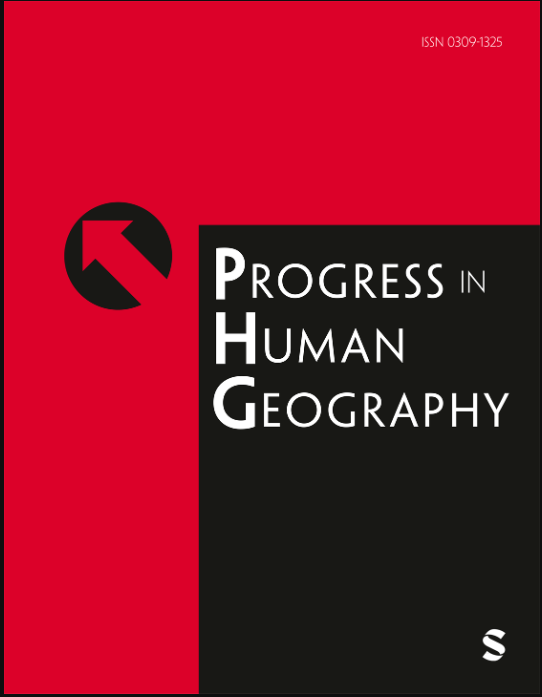和迈克·戴维斯一起学习积累的愤怒和叛逆的学识
IF 6.1
1区 社会学
Q1 GEOGRAPHY
引用次数: 0
摘要
这篇文章反映了迈克·戴维斯对社会正义的承诺如何塑造了他的教学实践和指导。它用作者的个人经历来强调戴维斯对被低估的社区和被忽视的地方的支持。更具体地说,这篇文章提供了一些例子,展示了戴维斯如何创建新的平台,放大了边缘化的声音。最后,作者利用目前对索尔顿海和科切拉山谷的研究来说明戴维斯的智力贡献如何为那些对社会和生态正义感兴趣的人创造了有价值的认知框架。本文章由计算机程序翻译,如有差异,请以英文原文为准。
Lessons in accumulated rage and rebellious scholarship with Mike Davis
This essay reflects on the ways that Mike Davis's commitment to social justice shaped his pedagogical practice and mentorship. It uses the author's personal experiences to highlight Davis's support for devalued communities and overlooked places. More specifically, the essay provides examples that show how Davis created new platforms that amplified marginalized voices. Finally, the author uses current research on the Salton Sea and the Coachella Valley to illustrate how Davis's intellectual contributions generated valuable epistemic frameworks for those interested in social and ecological justice.
求助全文
通过发布文献求助,成功后即可免费获取论文全文。
去求助
来源期刊

Progress in Human Geography
GEOGRAPHY-
CiteScore
16.40
自引率
7.00%
发文量
56
期刊介绍:
Progress in Human Geography is the peer-review journal of choice for those wanting to know about the state of the art in all areas of research in the field of human geography - philosophical, theoretical, thematic, methodological or empirical. Concerned primarily with critical reviews of current research, PiHG enables a space for debate about questions, concepts and findings of formative influence in human geography.
 求助内容:
求助内容: 应助结果提醒方式:
应助结果提醒方式:


